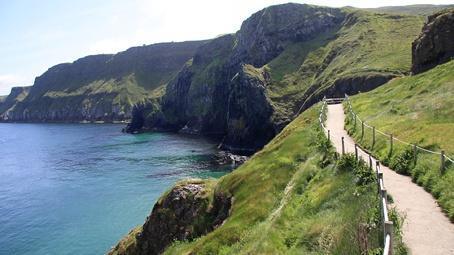
Caption
A photo of Belfast, the capital of Northern Ireland. Emory's Geraldine Higgins joins the panel to discuss her experience growing up during the Troubles.

A photo of Belfast, the capital of Northern Ireland. Emory's Geraldine Higgins joins the panel to discuss her experience growing up during the Troubles.
Geraldine Higgins, Director of Irish Studies, Emory University
Kevin Riley, @ajceditor, editor, The Atlanta Journal-Constitution
Professor Geraldine Higgins grew up in Northern Ireland as a member of her town's minority Catholic community. Her studies at Emory focus on literature written during the Irish revival and the 30-year struggle known as "the Troubles."
/
LISTEN: Geraldine Higgins on her childhood during the Troubles.
Perhaps one of the most well-known Irish writers, W.B. Yeats wrote famous poems like "The Second Coming" and "Easter, 1916." As an Irish nationalist, he supported the Irish Republican Brotherhood, later serving as a senator for the Irish Free State. The "Easter Rising," a movement for Irish independence during the first World War, would later set the stage for the Troubles decades later.
On Jan. 30, 1972, British soldiers opened fire on Irish activists protesting against internment without trial, an event that would be known as "Bloody Sunday." Poet Seamus Heaney wrote "The Road to Derry" as he reflected on the massacre.
/
LISTEN: Bill Nigut reads Seamus Heaney's "When all the others were away at Mass."
Monday on Political Rewind: The AJC's Patricia Murphy joins the panel.